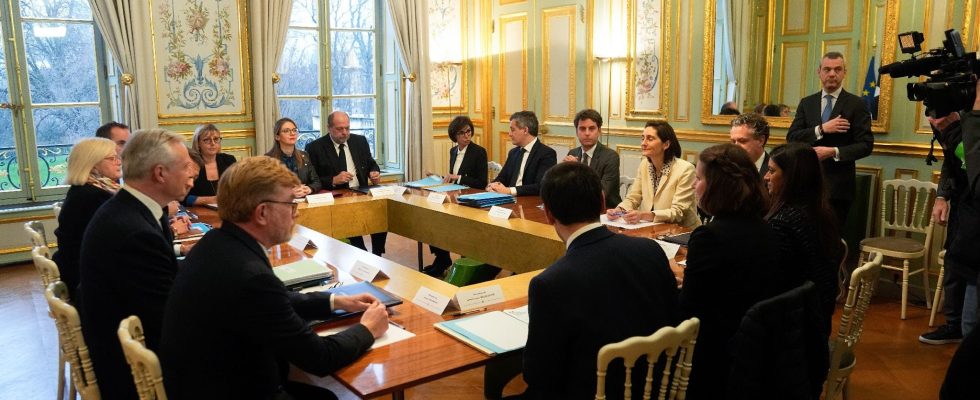“Give time to time”, this ancient wisdom has never been so little applied in politics. In the Bible, God creates the world in seven days, although he could have created it in a fraction of a second. Today, a minister must provide a solution to the French people’s problems in one hour and in less than 300 characters.
Many will point to social networks and the appearance of continuous information, whose economic model is based on clicks, which require the permanent creation of buzz to feed the informational Moloch. But it is clear that France remains a special case in the world, which has historically given pride of place to spin doctors in the global communications market. Informational acceleration then seems more of a catalyst than a cause of this political hyperspeed.
The particular love that the French have for the welfare state and their certainty of its omnipotence require those responsible to communicate constantly, doubt being forbidden to them. The government of Gabriel Attal, barely named, was ordered to saturate the media, with a series of trips and appearances on TV sets. Pierre Palmade kills a woman and the child she was carrying while driving under the influence of drugs? Let’s pass a law to establish the offense of vehicular homicide! While the offense he committed can be prosecuted by the prosecution without additional legislation. Faced with emotion, we must act and make the law talk. By mirror effect, those opposed to those in power feel obliged to react faster and stronger. With them in charge, they say, the State could only have been more omnipotent and omniscient. Who, power or counter-power, best saturates the media space dictates the calendar.
Even within these political forces, the cockfight, at least over who will crow the loudest at dawn, is incessant. For an MP, participating in the media spectacle is the best way to gain promotion by obtaining a position within his parliamentary group or responsibility for a text, or even by “climbing into government” . And, when the subjects already present in the debate are no longer enough, it is up to parliamentarians to create them through legislative proposals (already nearly 40 have been tabled since January 1, 2024) and amendments, sometimes responding to local interests, which further reinforces legicentrism, inflation and normative complexity.
Hypercommunication induces information fatigue, both for senders and receivers, and weakens political discourse. This injunction to politicians to communicate constantly encourages thoughtless comments, superficial debates and sterile polemics, increasingly ad hominem. In a Fifth Republic where the presidential figure is seen as the only true power, his personality and those of his aspiring successors are constantly scrutinized. Furthermore, this hypercommunication is far from having the desired effect on public opinion. As sociologist Dominique Wolton once said: “Media capital wears out and is not renewed.” This thesis is verified by the popularity rating of Edouard Philippe, who made rare but always thoughtful speech his specialty.
From the followers of degrowth, on the left, to the conservatives, on the right, including those who are concerned about democratic disintegration, in the center, everyone seems to conclude that time has been confiscated from us and that the incessant acceleration of the march of society leads us to generalized fatigue. But no one seems to understand the effects of hypercommunication on our democracy. In his latest pamphlet, Jean-Luc Mélenchon talks about this time which would have been confiscated from us by capitalism, while La France insoumise is undoubtedly one of the main actors in the hysterization of communication.
What to do ? Salvation will only come from politicians themselves, who must change their practices: not feeling obliged to continually feed the media ogre, considering that political discourse only has value if it is carefully thought out and ‘it is not contradicted either by the past word or by the future word. Everyone can change their mind, but political speech should not be erratic. Then, they themselves must change the rhythm of politics: give time to parliamentary debate, and have a healthy life. Indeed, our political staff have made virtues of lack of sleep and the absence of family or social life, proof of their sacrifices. However, there is nothing more absurd than entrusting one’s destiny to people whose lifestyle damages them psychologically and emotionally.
However, another life is possible for them. In Germany and many Nordic countries, politicians, including ministers, respect office hours, unless there is an emergency, and have dinner with their spouses and children. By restricting ourselves to such a pace, our policies would impose a new one on continuous information, which would also experience breaks, as it experiences during the summer or Christmas holidays.
Setting an example and setting a new pace is what a truly disruptive government would do.
* Sacha Benhamou is responsible for institutional relations at the GenerationLibre think tank.
